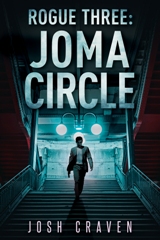Thoughts on Stephen King and ‘salem’s Lot
I have a love-hate relationship with Stephen King. More on that further down. First, I’ll talk a little about the book. Warning: here there be spoilers.
I just finished reading Mr. King’s second published novel, ‘salem’s Lot (“Lot“), which followed on the heels of Carrie. However, much of Lot was actually written prior to his writing or publishing Carrie, which makes for an interesting read from a writer’s-eye perspective.
Lot, in the trade paperback format I read is a King-esque 653 pages, and true to form, the book could be significantly shorter and the reader would be none the worse or wiser. Many of the typical King tropes are present in Lot: an author protagonist who is having a rough go of it; an adolescent with surprising talents (although it was nice that this particular young’un didn’t have any supernatural gifts, just a better knowledge of the undead than the adults); and cringey-but-humorous, well-written side characters that add little to nothing to the story but clearly provided entertainment for Mr. King as he was writing.
Synopsis: Down and out writer Ben Mears returns to a small town he lived in as a child, hoping to get past a recent tragedy and find writing inspiration in the local legendary spooky manse. But, just before he arrives in the Lot, a mysterious man (spoiler: vampire) buys the old mansion and commences to turn the entire town’s populace into blood-sucking denizens of the dark. It’s a straight-down-the-road vampire tale, an homage to one of my all-time favorite books, Stoker’s Dracula (King even goes so far as to have his protagonist refer to his older, wiser teacher friend as being his Van Helsing).
One thing that occurred to me as I read Lot, King doesn’t rely on a ton of plot twists, which I appreciate. There are some authors–especially newer, big-name writers–who seem to break their neck to add one more twist than before in an effort to be original. The end result is often a story that gets ridiculous and feels cheap at the end. King is frequently criticized for his endings (sometimes fairly – Under the Dome, I’m looking at you, sometimes not). I generally don’t have an issue with his endings, though. Every story has to end somewhere and I’d rather it be simple, plausible and not make a mess on the face of the book’s themes than “surprising” and asinine and pulpy. King’s books are very much about the journey, and not necessarily the destination, which brings me to another criticism of King.
His books are too long. I tend to side with King on this: so you get more content–how is that a bad thing? If you don’t want to read his rambling chapters of inconsequential-character inner dialogue, skip it. 99% of the time you won’t miss anything important. However, these chapters are often when King is at his witty, fun-to-read best. This is true of Lot. There are times when Lot is clearly very early writing; repeated words (not for effect), clunky prose; etc. But there are also portions of the book where he gets on a roll about some oddball side-character where you see King at his best and see him becoming the storyteller that blows our socks all the way to Derry in his later works.
“It’s like that old quote: ‘every kid in the late 60s who listened to the Velvet Underground wanted to start a band.’ Well, every kid in the 80s who read Uncle Stevie wanted to write a book. “
In the end, Lot concludes simpler but better than many of his other books. This is true of what I (and many) consider to be his peak phase, the period in his life when he was chock full of fresher ideas and concurrently fueling his craft with liquids and powders not beneficial for his physical health or his personal life.
I’m not saying King was a better writer when he was so drunk he saw three keyboards or so high he was grinding his molars down to nubs; I’m just saying things overlapped. When he sobered up, he got a little more serious (conscious?) in his themes, and as of more recently, has become a little more politically outspoken both in real life and in his work. I would argue that intentional themes often don’t net good books, though who am I but one of the million monkeys beating on a million typewriters, yet still not reproducing the works of Billy Shakes? However, this matter of themes and messages leads me into the love/hate relationship I have with Stephen King.
As time shambles on, and King has been rich beyond imagination for longer and longer, he seems to have become less in-touch with the reality in which the rest of us live. Hey, good for him. But no-so-good for me as a King reader. Our politics don’t align, and I don’t like to be brow-beaten with his views. He is emboldened by his celebrity on social media, and he says some god-awfully bone-headed things, in my opinion. But this is more of an issue I have with society overall: the old saying “never meet your heroes” has been sacrificed on the alter of social media. But that’s not really a big factor in my one-sided love/hate drama; I really don’t begrudge people for differing political views, and early on, like in Lot, King’s views were a moderately left wing product of his real world life experiences, reasonable and respectful. Cool. I’m a ‘live and let live’ kinda guy. That said, I don’t agree that every wealthy, famous liberal is intellectually superior to the rest of the world such that it is their manifest duty to lord over us simple folk for our own good. I get that vibe from King now; I didn’t back in the 80s. But I digress.
No, the real issue I have with King is something less tangible. It’s King as a brand, as the first and last name in traditional, mainstream horror. King is the King, and that’s so absurdly obvious it’s sets off my cliche alarm to even write that.
King sucks all the air out of the room. As a writer of dark fiction, it’s hard to watch. There is extremely little interest in mainstream publishing for traditional horror, and if your name isn’t King, you can pretty much wander off into the wilderness and die for all they care. And while Joe Hill made his way on his own merit, once the cat was out of the bag that he was the son of the King, it became a legacy thing. Joe Hill has been anointed the successor-in-waiting to his dad. Small presses, where the rest of the horror writers might sit under the table scrambling after dropped crumbs, live and die by King gracing them with his presence in their catalog, Mr. Hill right behind him. And the frustrating part of this is, as King readily admits, much of his work isn’t actually horror. This is especially frustrating when I have been criticized rather harshly for ‘not knowing what type of book I want to write’ because my horror novel didn’t meet that critic’s subjective idea of horror. But King can put out a story like Elevation, and it’s ‘another great work from the Master of Horror.’
No.
That’s not to blame King for any of this. His brand is now a great, lumbering, monstrous creation. Nevertheless, in the mainstream horror market, it’s like putting rocks in a jar. King’s books are the big rocks that go in first and take up most of the space; Koontz is the next size down, neck-and-neck with Hill, and after that it’s the little pebbles that fill in the crevices. Ketchum, Lansdale, Little, Gaiman. Now don’t get me wrong–just to be in that jar is a significant accomplishment that indicates tremendous work, talent and success. Sadly, these writers aren’t young. We’ve Lost Ketchum already, along with some of the other horror writers from the 80s glory days. Hill is in a good position, and not by accident. To put a spin on an old adage, while Hill is both of these things, it’s sometimes better to be blood-kin than to be good.
So that’s a lot of the things that bother me about King and his presence in the genre. But I’m not blind; I realize this is a double-edge sword. Were it not for King, the giant whose shadow eclipses every other genre author on the face of the planet, there might not even be a shelf or a “jar” for mainstream horror authors.
The space that was labeled “Horror” in the 80s and into the 90s was hit by the Mack truck known as the “Thriller.” Starting with the sublime Thomas Harris and Hannibal Lecter, the supernatural boogeyman was pushed back under the bed in favor of the serial killer, and more recently, in favor of the psychopath in the next room (Gillian Flynn’s books, et al.). I know I’m repeating myself here (my wife literally loves it when I restate things ad nauseam to add nuance to my opinions), but while King might suck all the air out of the room, without him, there wouldn’t even be a room. And for that, I have to love him.
Besides, I was always a reader, but it wasn’t until I read The Shining that I truly realized I wanted to be writer. How can you not love that? It’s like that old quote: ‘every kid in the late 60s who listened to the Velvet Underground wanted to start a band.’ Well, every kid in the 80s who read Uncle Stevie wanted to write a book.
Anyhow, I should be working on my current WIP instead of blogging. So, I’ll get back to my horror novel. Or, for the critic who said I ‘definitely know how to tell a story, I just don’t know what kind of story I want to tell’, I’ll tell him exactly what kind of story I’m writing–it’s Stephen King meets Michael Connelly. I’m sure that’ll trip his breaker. Ha!
Stay safe in this crazy world.
JOMA Circle is on Amazon!
New Novelette Released
You May Also Like

Hellbender and The Shining Hotel
October 22, 2019